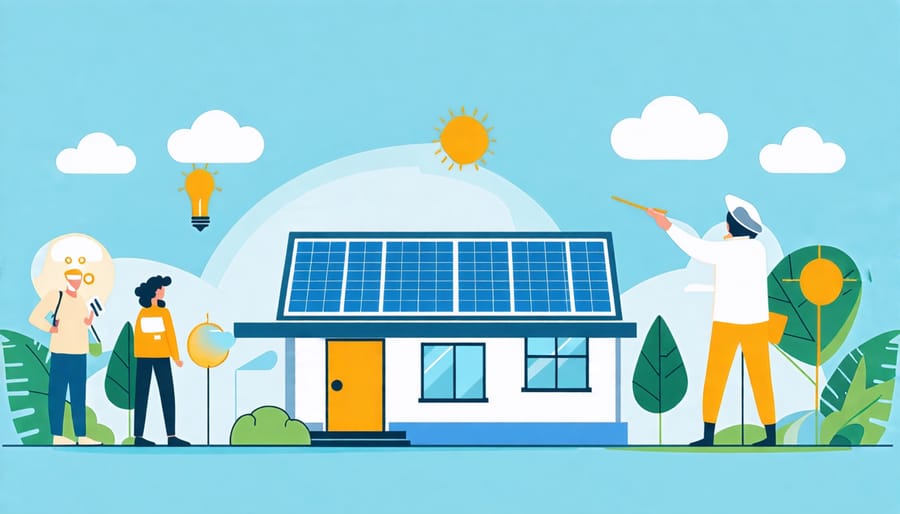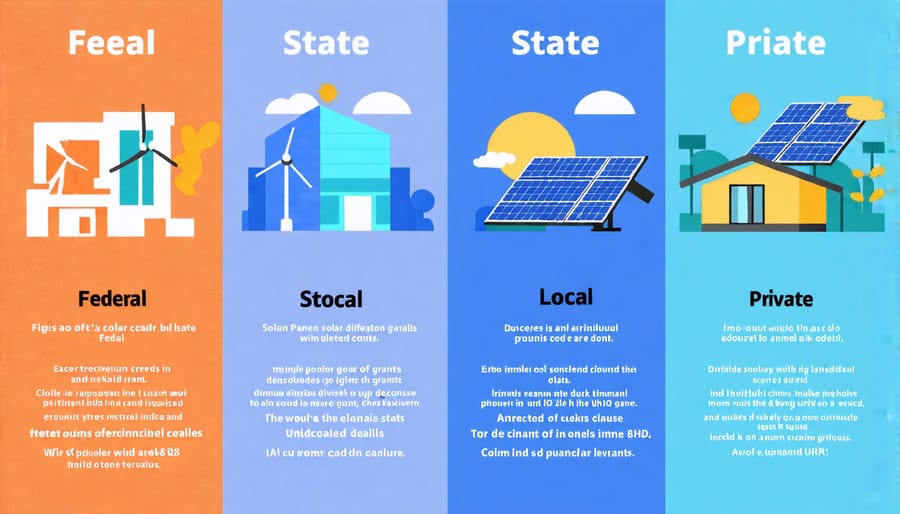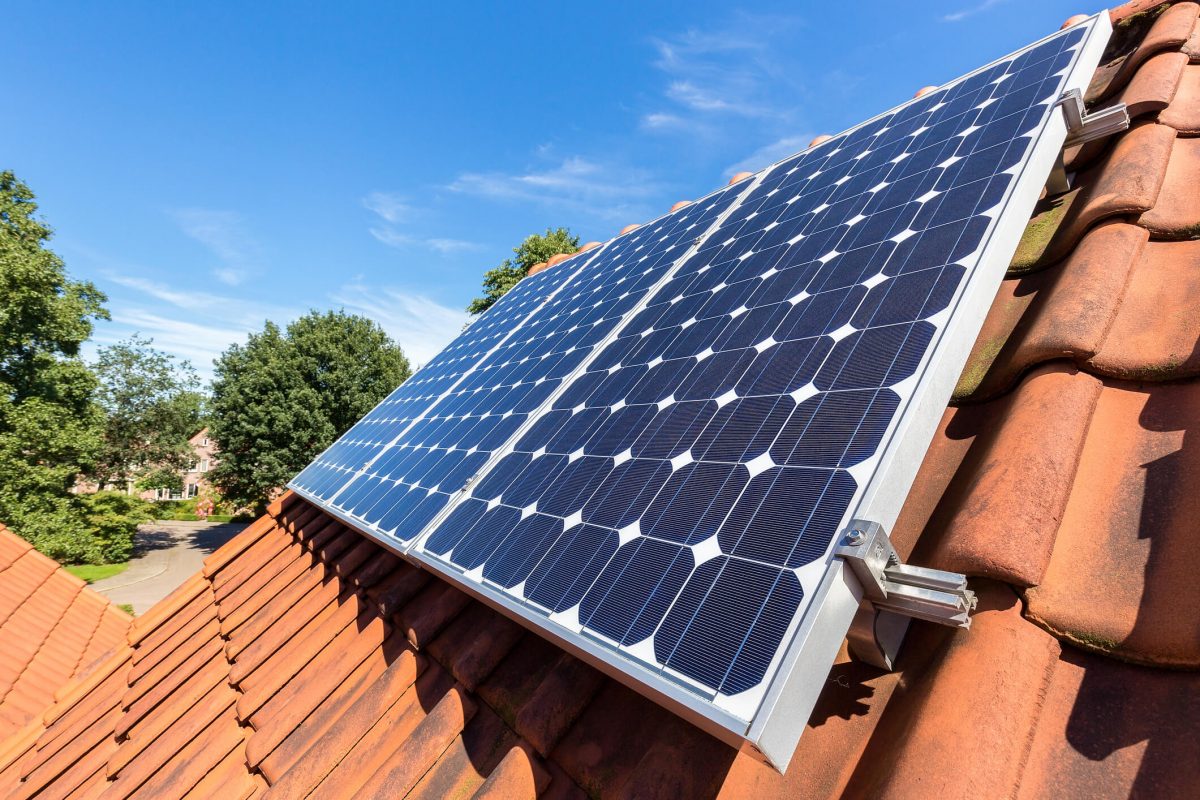Explore government and local grants designed to offset the cost of residential solar panel installations. Research state-specific programs and utility company incentives that might be available in your area to maximize savings. Apply for federal tax credits, such as the Investment Tax Credit (ITC), which can significantly reduce your solar panel costs. Consult with solar installation professionals who can guide you through the grant application process and provide insights into less-known financial aid options. Prioritize these steps to not only save money but also contribute to a sustainable future.
Understanding Solar Panel Grants
What Are Solar Panel Grants?
Solar panel grants are financial incentives offered to homeowners to reduce the initial cost of installing solar panels. These grants make it easier to embrace solar energy by covering a portion of the installation expenses, helping you save money while adopting a more sustainable lifestyle. Typically, grants are funded by government programs, local authorities, or specific environmental organizations aiming to promote renewable energy use.
To qualify for a solar panel grant, homeowners generally need to meet criteria such as owning their property and agreeing to keep the solar panels for a set period. Additionally, eligibility might depend on income levels, location, or the specific grant program’s guidelines. Importantly, solar panel grants do not need to be repaid, unlike loans, which can further alleviate financial concerns regarding the installation.
By taking advantage of solar panel grants, you can not only decrease your energy bills but also contribute to a cleaner environment, fostering a more sustainable way of living.
Who Offers Solar Panel Grants?
When it comes to funding options for installing solar panels, a variety of entities offer grants to homeowners. Governments, both federal and state, are primary providers of solar panel grants. These grants are part of broader initiatives to promote renewable energy and reduce our carbon footprint, making solar energy more accessible and affordable. Additionally, numerous green organizations and environmental charities dedicate resources to encourage sustainable living. These entities are enthusiastic about supporting homeowners willing to embrace clean energy solutions. Often, grants from these organizations are designed to ease the initial financial burden, ensuring more people can participate in this sustainable shift. Taking advantage of these grants not only reduces upfront costs but also helps lower monthly energy expenses, offering long-term financial and environmental benefits. Homeowners stand to gain immensely, fostering greener communities while enjoying a more sustainable lifestyle.

Types of Grants Available

Federal Grants
Federal grants are an exciting opportunity for homeowners looking to embrace solar energy without bearing the full financial burden. While grants specifically designed for residential solar panel installation can be limited, federal incentives like the Federal Solar Tax Credit significantly offset initial costs. This credit allows homeowners to deduct a portion of their solar costs from their federal taxes, making solar more accessible and affordable. Eligibility is straightforward: if you own your home and install a residential solar system, you typically qualify for these benefits. It’s important to note that the credit applies to the initial year of installation, providing a crucial incentive to act sooner rather than later.
Another practical step is exploring complementary solar financing options to further slash the costs. These options can maximize your savings and help you navigate the financial landscape with ease. By investing in solar energy, homeowners not only contribute to environmental preservation but also enjoy long-term reductions in energy bills, making it an optimistic step towards a sustainable future.
State and Local Government Grants
State and local governments across the U.S. offer a variety of grants to encourage the adoption of residential solar panels, helping you save money while promoting sustainability. These grants vary significantly depending on where you live, with many states tailoring programs to meet their unique energy goals and climate conditions. For example, California’s Solar Initiative offers significant incentives as part of its commitment to reducing carbon emissions, making solar a more affordable option for homeowners. Similarly, states like Maryland and Massachusetts provide generous grants, often combined with additional rebates or tax credits.
Local municipalities sometimes offer additional support, providing grants to further reduce upfront costs. It’s crucial to research what specific programs are available in your area, as opportunities can vary widely even within a state. Debunking a common myth, these grants are often straightforward to apply for, mainly requiring proof of residency and project plans. By tapping into these resources, you not only contribute to a healthier planet but can also enjoy substantial energy savings each year.
Non-Profit and Private Grants
Non-profit organizations and private entities often offer grants to encourage the adoption of residential solar panels, easing the initial cost for homeowners. These grants can significantly reduce monthly energy bills and promote sustainable living practices. By bridging the financial gap, they make solar accessible to more people, combining personal savings with environmental responsibility.
Applying for a Solar Panel Grant
Preparing Your Application
Before diving into the grant application process for residential solar panels, it’s crucial to gather the necessary documentation and complete some important preparations. Begin by assembling your utility bills from the past 12 months. These will establish your energy usage, which can be vital in demonstrating the potential for solar savings. Next, reach out to multiple solar energy providers to obtain quotes. These estimates will provide a clear picture of your projected costs and savings, strengthening your application.
In addition to financial documents, prepare a detailed plan outlining your solar installation project. Describe the type of panels you aim to install, their capacity, and the expected environmental impact. Also, gather any related permits or zoning approvals, if applicable. A comprehensive package makes a compelling argument for the economic and environmental benefits of your project.
Finally, ensure that you’ve thoroughly reviewed the eligibility criteria and specific requirements for the grant you’re applying for. Complete all forms accurately and triple-check for any deadlines to enhance your chances of success.
Common Application Mistakes
When applying for grants for residential solar panels, homeowners often make some common mistakes that can hinder their chances of securing funding. One frequent error is failing to thoroughly research available grants and their specific requirements. Each grant may have unique eligibility criteria, so it’s crucial to ensure that your application aligns with the guidelines. Another mistake is incomplete or inaccurate documentation. Double-check that all necessary paperwork is included and that your details match what’s required by the grant-giving body.
Timing is also essential; submitting applications after the deadline is a missed opportunity. Set reminders for important dates to ensure timely submissions. Additionally, not tailoring your application to highlight both personal financial benefits and environmental impact can weaken your case. Paint a clear picture of how the grant will contribute to reducing your energy bills and carbon footprint. Finally, don’t overlook smaller, local grants in favor of larger national ones. They might be less competitive and more suited to your individual needs. Avoiding these pitfalls will increase your chances of successfully securing funding to power your home with sustainable energy.
Debunking Myths About Solar Panel Grants
Solar Is Too Expensive
Many homeowners hesitate to go solar due to misconceptions about high costs. However, numerous grants and incentives are available that make solar panels more affordable than ever. By taking advantage of these opportunities, you can significantly lower your initial investment, sometimes covering up to 100% of installation costs. In addition to grants, tax credits and rebates can further reduce expenses. Over time, the energy savings generated by solar panels can lead to substantial financial benefits and even pay for the system itself. Embrace the shift to solar power without fear of overwhelming costs and enjoy both immediate and long-term savings.
Solar Panel Grants Are Hard to Get
Obtaining grants for residential solar panels may seem challenging, but they are indeed accessible with the right approach. Start by exploring options from government programs, local initiatives, and nonprofit organizations that support sustainable home improvements. Research and preparation are key—gather all necessary documentation, and tailor applications to highlight your environmental and financial goals. Many grants are designed to support homeowners committed to sustainable living, so emphasize the positive impact solar panels will have on both your energy bills and the environment. By being thorough and persistent, you can successfully navigate the process, making solar power a practical reality for your home.
Financial and Environmental Benefits
Boost Your Home’s Value
Installing solar panels can significantly boost your home’s value, offering a fantastic return on investment. Prospective buyers are increasingly attracted to energy-efficient homes, which can translate to higher resale prices. Solar panels reduce energy bills, providing future owners with substantial long-term savings—a key selling point. Additionally, homes equipped with solar power can sell faster due to their appeal to environmentally-conscious buyers. Contrary to the myth that solar panels are a costly liability, they’re an asset that enhances property worth while contributing positively to the environment. By investing in solar technology, you’re not just saving on electricity; you’re increasing your home’s marketability.
Reduce Your Carbon Footprint
Switching to solar energy is a powerful way to reduce your carbon footprint and make a positive environmental impact. Solar panels generate clean, renewable power from the sun, significantly cutting down on harmful emissions. By adopting solar energy, homeowners contribute to a decrease in fossil fuel consumption, reducing pollution and conserving natural resources. This shift not only benefits the planet but also offers long-term savings on energy bills. Embrace solar power to support sustainable living and promote a healthier environment, all while enjoying personal financial gains from lower utility costs.

Conclusion
In conclusion, applying for solar panel grants presents a fantastic opportunity for homeowners to lower energy bills and contribute to a sustainable future. These grants can significantly reduce the upfront costs of solar installation, making solar power more accessible to a broader audience. By taking advantage of these financial aids, you not only increase the value of your property but also enjoy long-term savings and energy independence. Embracing solar energy is a proactive step towards reducing your carbon footprint, proving that environmentally conscious choices can be both practical and financially rewarding. Now is the time to explore your grant options and transition to a greener lifestyle.









